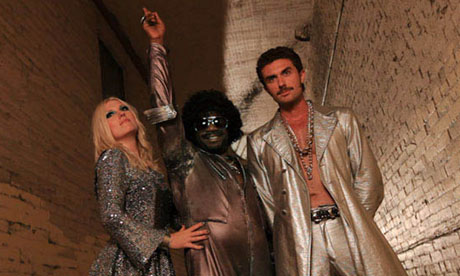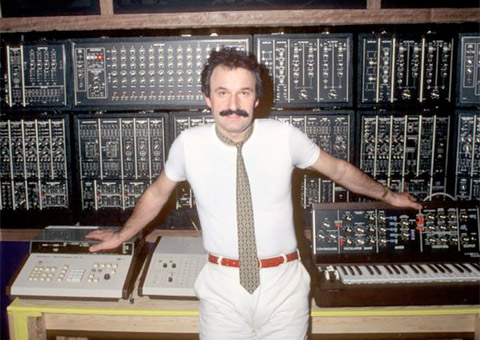I like disco as much as the next person, which is to say I like it at night, in moderate helpings, and only when accompanied by spirits. Disco has long been the musical genre to caricature rather than savour, best enjoyed in the background on hazy nights out rather than as a legitimate musical experience. So presented with the opportunity to sit through a two-hour disco documentary at the London film festival, I was a bit circumspect.
But from the first bar of that sour-sweet high-octane disco beat, I was hooked. This is because The Secret Disco Revolution is no ordinary history lesson about the 70s craze. Rather than simply charting the rise and fall of disco to a thumping soundtrack, the film presents an unexpected school of thought – that disco was actually a vehicle of liberation, a revolutionary tool used to end the oppression of women and black and gay people in 1970s America.
For those viewers who find that theory a bit dubious (mostly all of them), writer and director Jamie Kastner offers a neat solution: tell the story of disco through the eyes of its "revolutionary masterminds": a sparkly trio waving their hands over a disco ball as they plot the liberation of America's underclass, using unwitting musicians who have no sense of their subversive purpose. This "cheesy, glittery, over-the-top Mod Squad", as Kastner himself describes them, gives us something to laugh about, and allows the film's thesis of revolution to be treated with the scepticism it initially deserves.
But as you shimmy through the world of disco, you start to believe in its subversive nature. Finding its home in dark nightclubs where class, gender, race and sexual boundaries disappeared completely, early disco was the music that brought people together – all without the music industry's hegemony over the radio and Billboard charts.
Interviews with the original disco DJ Nicky Siano and historian Alice Echols make the premise more believable as well, even if Echols's theories border on the surreal. At one point she brands Donna Summer's 20-minute Love to Love You Baby as a "musical critique for the feminist crusade against three-minute sex". The entire audience laughed in disbelief, but on second thoughts …
Meanwhile, the likes of Gloria Gaynor, Thelma Houston, Martha Wash, KC from KC and the Sunshine Band and Kool from Kool and the Gang bring us back to the reality of being a disco musician, recalling riding the wave from being an underground hit to a record-industry product that was made cheap and sold big. None of them see themselves as emissaries of the revolution, but by this point you feel a bit sorry for them for not understanding their political worth. KC takes himself particularly seriously, still bitter at the music moguls who tore him away from funk and pushed him to the beats of Get Down Tonight, only to be left to the dogs when rock came along.
The film reaches its zenith when we meet the Village People. Henri Belolo, the group's co-creator and songwriter, happily acknowledges what everyone assumed – that yes, the Village People were meant to be a subversive group, a gay icon, a tongue-in-cheek response to the rigid white middle class that so adored them. But put this theory to the People themselves, and all you get are blank, angry stares. Kastner asks: "Do you see yourselves as performing double-entendres?" They respond: "No." "Do you see yourselves as gay icons?" "No." "What was In the Navy about?" "Well obviously, it was about being in the navy!" The film then cuts to a clip of the quintet prancing around on an aircraft carrier for an official US Navy event, short-shorts and body paint barely covering their modesty, the all-male audience nodding along.
As Secret Disco Revolution often reminds us, the kings and queens of the era rarely saw the political statement they were making, and it seems with the Village People, their fans didn't either. But change was happening all the same, and you can't help but respect disco's masterminds – whoever they were – for coming up with such a clever plan.










